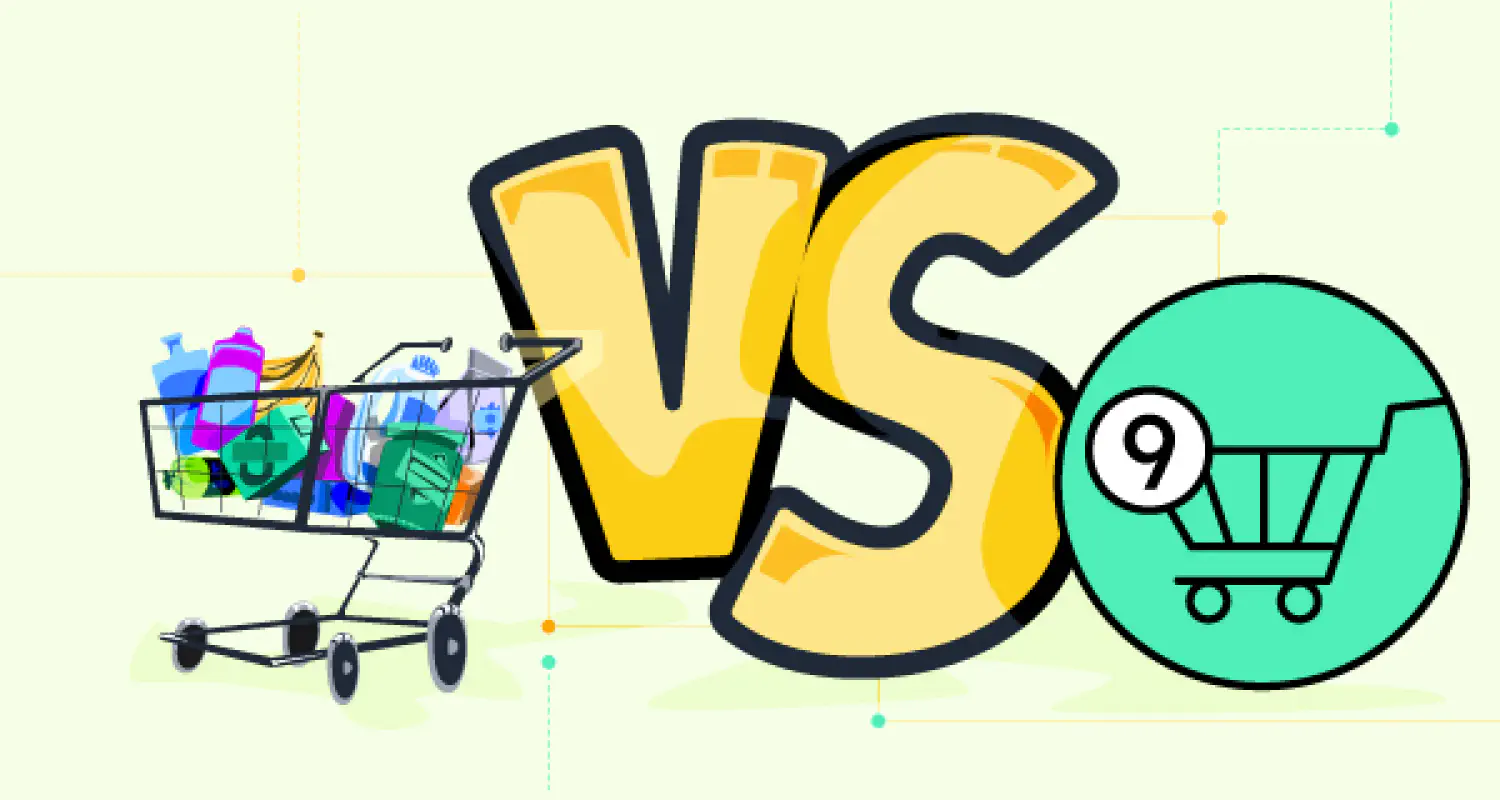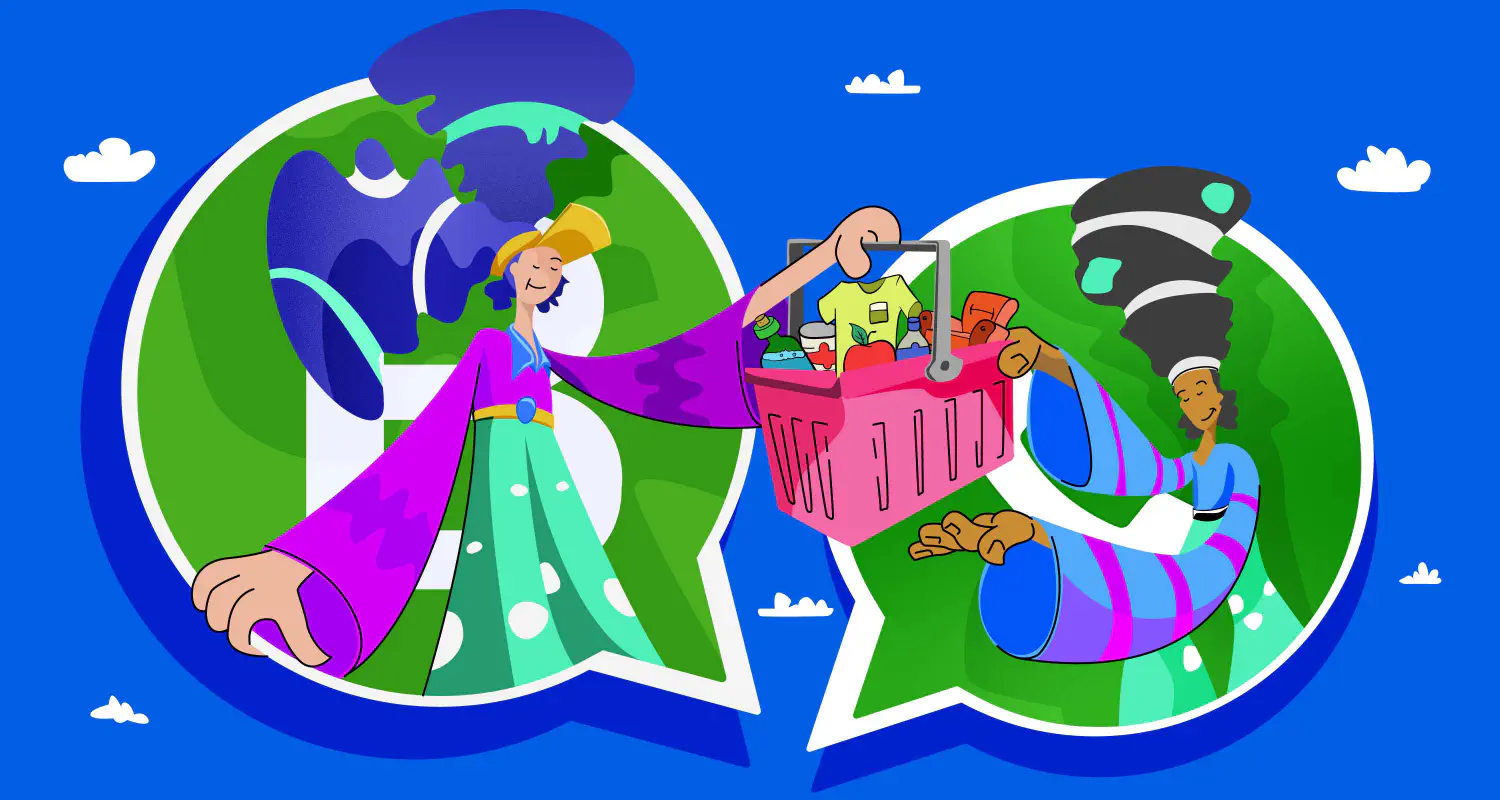WhatsApp Business API vs. Traditional Sales Channels - Which Is Better?

The way we conduct business has dramatically evolved over the past few years. For many organizations, the days of traditional sales channels are becoming a thing of the past. When comparing WhatsApp Business vs. traditional sales, it’s clear why more people are turning to WhatsApp.
The WhatsApp Business app and the WhatsApp Business Platform both provide businesses with tools and features to manage customer communications. But, what’s the edge of WhatsApp as a sales channel, and how does it stack up against the more conventional sales channels? Well, that’s what we are here to explore.
Why Use WhatsApp Business API for Sales?
WhatsApp is growing fast. It’s not just for personal chats anymore. With 2 billion users worldwide, it’s becoming a key tool for sales. The WhatsApp Business API helps companies reach more customers and run their sales more efficiently.
WhatsApp is still innovating. Recently introduced features like voice calls and groups, accompanied by well-known features like automated messages, chatbots, and deep integrations with CRM systems make it the go-to channel for sales for many businesses.
WhatsApp Business API for Sales: Pros & Cons
The benefits of using WhatsApp to sell are numerous and impactful. WhatsApp can provide direct, personalized communication and powerful automation tools. With a Team Inbox like Rasayel, you can manage all WhatsApp communications, making sure no lead is lost.
Let’s discuss the advantages and limitations of using the WhatsApp Business API for sales in more detail.
Pros
- Direct & personalized communication: You can connect with customers on a personal level, humanizing your brand and making customers feel valued.
- Efficient communication: Features like WhatsApp groups and voice calls improve communication, allowing for quicker responses and targeted customer engagement.
- High engagement rates: With a 98% open rate, WhatsApp messages are almost always read, far surpassing email open rates.
- Powerful automation: You can use chatbots and automated workflows to handle inquiries, follow-ups, and personalized offers without human intervention.
- CRM integration: The programmable nature of WhatsApp Business API allows you to integrate it with your CRM system.
- Global reach: WhatsApp is the most popular messaging app in over 180 countries, supporting more than 60 languages.
Cons
- Initial setup costs: While the API is cost-effective, the initial setup can be expensive. Starting small and scaling up can help reduce costs.
- Compliance requirements: Following WhatsApp’s strict business messaging policies can be restrictive and require extra effort to comply.
Traditional Sales Channels: Pros & Cons
The usual sales channels with tried-and-true methods like retail locations, direct mail, and telephone sales still remain vital in the business landscape. Let’s explore the areas where traditional channels excel and where they fall behind.
Pros
- Physical interaction: In brick-and-mortar stores, customers can touch, feel, or try out products before purchasing.
- Personal touch: Face-to-face interaction in traditional sales allows for personalized service. Salespeople can build relationships with customers, which can drive loyalty.
Cons
- Limited reach: Traditional sales channels are typically confined to a specific geographic location, limiting a business’s potential customer base.
- Higher costs: Running a physical store comes with significant overhead costs, including rent, utilities, and staff salaries.
- Less convenient: In the age of instant gratification, traditional sales channels can be less convenient. Customers may have to deal with issues like travel time, store hours, and queues.
WhatsApp Business vs Traditional Channels: Factors to Consider for Sales
1. Business type and target audience
Before shifting your sales to WhatsApp, ask yourself: What’s the nature of your business, and who your customers are? WhatsApp is great for digital-savvy audiences and businesses looking for direct communication. Traditional channels might be better for businesses where physical interaction is key.
2. Cost & Budget
What’s your budget? WhatsApp Business can be cost-effective with lower overhead costs, while traditional channels often require significant investment in physical locations and staff.
3. Reach & Scalability
How far do you want to reach? WhatsApp provides global reach and scalability with ease, while traditional channels may be limited by geography.
4. Customer Engagement
Think about how you engage with your customers. WhatsApp offers high engagement rates and personalized communication, whereas traditional channels can provide a personal touch through face-to-face interactions.
5. Flexibility & Adaptability
Consider the flexibility of your sales strategy. WhatsApp allows for quick adjustments and automation, while traditional channels may be slower to adapt to market changes.
6. Data Collection & Analysis
Look at how you collect and use customer data. WhatsApp integrates easily with CRM systems for detailed analytics, whereas traditional channels might struggle with data collection and analysis.
7. Convenience for Customers
Think about customer convenience. WhatsApp offers instant communication and support, while traditional channels might require customers to visit a physical location, which can be less convenient.
Which Channel Suits Your Business Better?
the decision between WhatsApp Business and traditional sales channels depends on MANY factors including your business type, target audience, budget, and operational needs.
Here’s a comparison to help you decide which channel suits your business better.
| Factor | WhatsApp Business | Traditional Sales Channels |
|---|---|---|
| Business type & audience | Ideal for B2B software companies and other businesses that sell online | Suitable for businesses relying on physical interaction |
| Cost & budget | Cost-effective with low overhead | Higher costs due to physical location and staff |
| Reach & scalability | Global reach, easily scalable | Limited by geographic location |
| Customer engagement | High engagement with personalized communication | Personal touch through face-to-face interactions |
| Flexibility & adaptability | Highly flexible, quick adjustments | Slower to adapt to market changes |
| Data collection & analysis | Easy integration with CRM systems, detailed analytics | Limited data collection and analysis |
| Customer convenience | Instant communication and support | Less convenient, requires physical visits |
How to Start Running Your Sales on WhatsApp?
Selling on WhatsApp with Rasayel means using the platform’s tools and features to improve your sales processes and boost customer engagement.

Here’s a list of some key best practices that would help in running your sales effectively over WhatsApp:
- Simplify Customer Onboarding
You can easily add new customers and automatically sync customer data in your CRM, automate welcome messages, and provide timely information to new leads.
- Automate Sales Workflows
Use automation for responses, follow-ups & personalized offers to maintain consistent communication. The drag-and-drop chatbot builder requires no coding skills.
- Personalize Customer Interactions
Tailor messages with data attributes and customer segmentation to meet specific needs and increase sales chances.
- Use Rich Media
Support your messages with images, videos & documents to engage and inform customers.
- Monitor & Analyze Performance
Track engagement & performance metrics through integrations with HubSpot and Pipedrive to adjust your strategy and optimize sales.
Conclusion
The battle between WhatsApp Business vs. traditional sales really boils down to your business’s needs and your customers’ preferences. There’s no one-size-fits-all approach, and many businesses find a blended strategy to be the most effective. The key lies in understanding your audience and aligning your sales strategy to meet their needs while capitalizing on the strengths of each sales channel.
The future of WhatsApp Business for sales is promising as the platform keeps evolving and innovating. With its expanding set of features, such as advanced automation, chatbots that use AI, and deep CRM integration, WhatsApp is set to impact how businesses interact with customers.
In the end, every sales channel has its place. WhatsApp for sales is an excellent tool for businesses looking for a cost-effective channel with a global reach, while traditional sales channels continue to offer unique advantages in customer experience and service. As we progress in the digital era, businesses must adapt, evolve, and use the best of both worlds.
Frequently Asked Questions

Miodrag brings over 15 years of hands-on experience in content writing and marketing, with a talent for making even the trickiest topics clear and interesting. His passion lies in guiding businesses to effectively utilize WhatsApp to build stronger customer relationships and drive results. With an eye for detail and a heart for storytelling, he’s here to show how effective WhatsApp communication can boost sales and enhance customer engagement.



